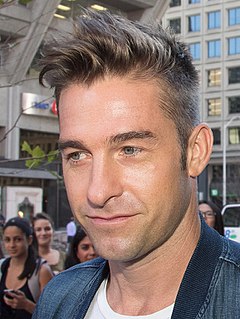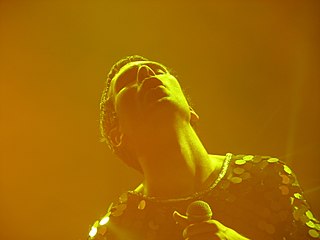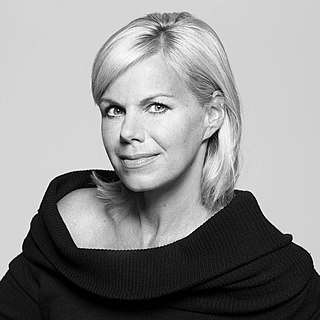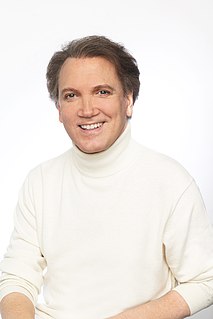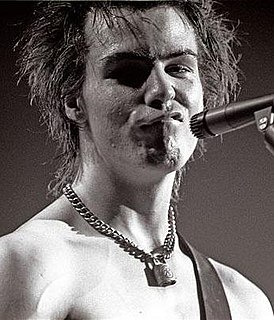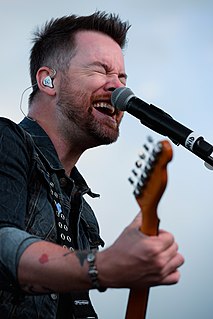A Quote by Scott Speedman
I'd like to do the young cadet thing again for sure, but that's why I wanted to do this, to see if I could do it. I took the scenes out of the script and put them together and read them as one little arc, story and that seemed to work.
Related Quotes
A friend and I flew south with our children. During the week we spent together I took off my shoes, let down my hair, took apart my psyche, cleaned the pieces, and put them together again in much improved condition. I feel like a car that's just had a tune-up. Only another woman could have acted as the mechanic.
Angeline's been hanging out with that dhampir. I just saw them walking off together. Is something going on with them?" "Which dhampir?" I asked. "The one with the fake British accent." "I don't think it's fake." "Well, whatever." Even I could read the jealousy in Trey's features. "What's up with them?" "Pretty sure there's nothing." "Then why are they always together?" Because she's trying to get over you, I thought.
I structure the scripts and work on them on films and work on scenes with writers and but I haven't written a script myself, I really respect what they do and I'm fortunate I get to work with people that I really enjoy working with and we all kind of spitball and work together on these things, but I haven't written a script yet.
Sure, kids want to read whatever is the hot book, and of course they want to read fantasy and any kind of speculative fiction, but they also like to read stories with kids that look just like them, that have the same problems as them. And I've noticed that what they particularly want to see is to see those characters prevail. So they don't want sanitized situations. They want stories to be raw, they want them to be gritty, but they also do want to see the hope at the end of the story.
When I get up and work out, I'm working out just as much for my girls as I am for me, because I want them to see a mother who loves them dearly, who invests in them, but who also invests in herself. It's just as much about letting them know as young women that it is okay to put yourself a little higher on your priority list.
When people watch me on TV they see part of my life. I wanted to let them know the real me behind the scenes. The child who was a concert violinist from the age of six. The young woman who took on the challenge to compete in the Miss America pageant. The television journalist for twenty-five years. The mother of two who, just like most women, struggles to balance work and family.
I had a hard time on TV, the last time on television, so I wasn't sure that I wanted to do that again. But, I really am a big fan of Jenji and I knew this is her next thing, so I read it. And once I read the script, I was really, really impressed that there was a woman who was the centerpiece of her own story, and that she was in the center of her own narrative.
I took many notes, more than usual before I sat down and wrote Act One, Scene One. I had perhaps eighty pages of notes. . . . I was so prepared that the script seemed inevitable. It was almost all there. I could almost collate it from my notes. The story line, the rather tenuous plot we have, seemed to work out itself. It was a very helpful way to write, and it wasn't so scary. I wasn't starting with a completely blank page.
Whenever we come back from another project, we're always so stoked to see each other and play with each other again. I really feel like that's been the key to why we're still together as a band. I remember a period five or six years ago feeling a little burnt out and wasn't sure whether I wanted to keep doing it.
I suppose we'll make money off our album and our singles and stuff, but, like, they were made as we wanted them, exactly with what we had to say, and done exactly how we wanted them, right? And, like, we didn't put them out to make money. We put them out because we wanted to do them, do you know what I mean?
I always believe that every song tells a story, so the last thing I want to do is edit out like the meat of the story. I would pick songs based off a), whether I felt like I could do anything with them, and b) whether I felt like I could keep the story intact. And then you sit in with one of the piano players and one of the vocal coaches and kind of work out your arrangements that way.
It's hard to tell if anyone's interested in reading a serialized story. But it's interesting to put in a cliffhanger each week. That was popular in old comic strips. They'd write a weekend story different from the daily strip. So people follow one story day to day, and a separate story on weekends. If you read them, you think "I'll read two more." Then you're like "I gotta find out!" And you read 500 more.
